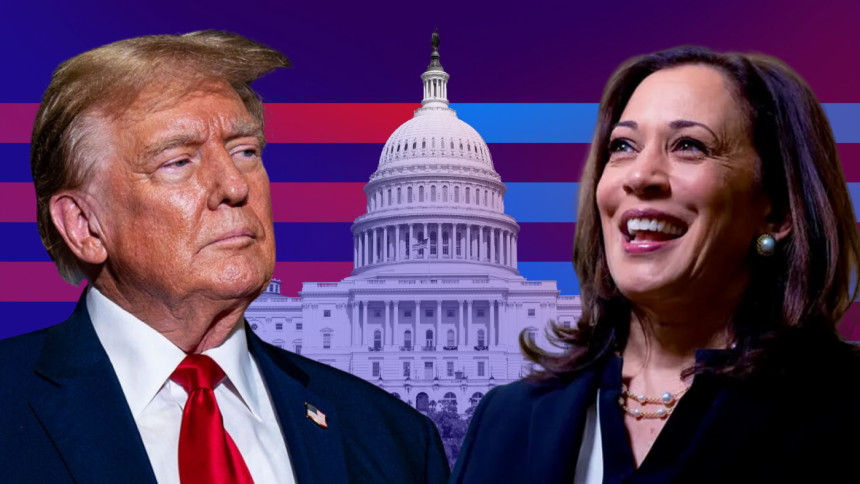When will we know who won?
As Americans voted yesterday, officials are calling for patience as they tally ballots in what could be a historically close presidential race — and warning that it could take days to find out who has won.
Under the US system, citizens do not vote directly for their leader. Instead, their ballots elect the 538 members of a group called the Electoral College, which then elects the president and vice president.
Each state casts its Electoral College votes for the candidate that won its popular vote. Bigger states, with more representatives in the US Congress, get a larger share of the 538 Electoral College votes on offer.
Democratic Vice President Kamala Harris and her Republican rival Donald Trump will be vying to get to the all-important 270 votes that pushes them past the halfway mark and guarantees them the keys to the Oval Office.
But with this year’s race going down to the wire, experts point to a growing risk of delays and complications like legal challenges over the vote count.
Around 83 million people have voted ahead of election day, over half of the total ballots cast in 2020.
The first polls close at 6:00 pm Eastern Time (2300 GMT) but when the race is tight, it could take days before a victor is projected.
In 2020, US media declared Democratic candidate Joe Biden the winner on Saturday November 7, although polls closed on Tuesday.
In 2016 and 2012, voters had a shorter wait.
After votes are cast, local election officials, who may be appointed or elected, process and count them. Tallying methods vary from one location to the next.
Many states have changed election laws to allow mail-in or overseas votes to be prepared for counting ahead of election day, although Pennsylvania and Wisconsin have not made similar changes.
Both are battlegrounds that could swing towards either party. With mail-in ballots not allowed to be processed until November 5, this could slow counting.
Especially close vote counts can also trigger recounts.
Rather than waiting for winners to be declared by local authorities, US news outlets call races based on what they see in the voting.
But this process is not official and results still have to be certified at the state level, with every ballot accounted for.
The deadline for states to certify their results is December 11, and each state’s appointed electors then cast their votes for the candidate who won in their popular vote.
By December 25, electoral certificates of each state must be received by the president of the senate, who is also the vice president — Harris.
On January 6, Congress counts and confirms the results, before the new president is inaugurated on January 20.
What may cause delays?
Certification is a formality, but experts warn that there are growing risks of obstructions.
At least 22 county election officials voted in 2022 to delay certification in battleground states, Brookings experts noted in a commentary last month.
This was nearly a 30 percent increase from 2020.
At least 35 election officials have “refused to certify election results and may be in a position to do so again,” according to Citizens for Responsibility and Ethics in Washington (CREW).
Successful obstruction could impact state and federal certification deadlines, the campaign group warned.
The certification process has come under scrutiny and been especially politicized since Trump refused to concede the 2020 election.
In that race, dozens of legal challenges by Trump and his allies were tossed out by the courts.
There has been a deluge of lawsuits from both parties ahead of election day, which might also complicate the tabulation.
LondonGBDESK//



Comments are closed.